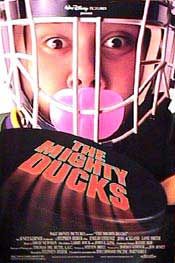Latest AMPTP Proposal Reveals Studios’ Plans for Generative AI
By Movieguide® Contributor
The AMPTP released its newest offer to end the WGA strike, revealing how studios plan to use generative AI in the future.
Offering “landmark protections for writers surrounding the use of Generative Artificial Intelligence (GAI),” the proposal outlined that “written material produced by GAI will not be considered literary material” and that “a writer will not be disadvantaged if any part of the script is based on GAI-produced material. [Therefore,] the writer’s compensation, credit and separated rights will not be affected by the use of GAI-produced material,” Deadline reports.
At first glance, this offer appears extremely generous, allowing writers to use GAI tools, like ChatGPT, to help generate scripts and ideas without detriment.
What the offer chooses to ignore is that under current copyright law, art generated by GIA can only be copyrighted if it is also worked on and edited by a human, The Hollywood Reporter adds. Without a human working on the creative process of the piece, a GIA-created work of art would immediately enter the public domain.
By paying writers as if they are creating original scripts rather than rewriting or touching up on existing ones, the GIA work becomes eligible for copyright protection.
“Fundamentally, the offers mistook who’s doing who a favor,” WGA member John Lopez told The Hollywood Reporter. “They need us.”
WGA members were unhappy with the proposal beyond its GIA terms, feeling that the offer failed to address other fundamental needs, such as better avenues for weekly pay or minimum room sizes. The proposal also had many apparent loopholes that would allow studios to subvert their promises to writers.
For example, “a new structure to train writers to become the showrunners of tomorrow” would require studios to guarantee that the showrunner could choose at least two midlevel writers and guarantee their employment throughout production so they could learn more about the showrunning side of the business.
WGA members quickly pointed out that studios could easily avoid this clause of the deal by simply not hiring a showrunner.
While the newest proposal from the AMPTP shows that they are willing to compromise on the WGA’s most important issues, it also makes it clear that the studios hope to retain the upper hand once negotiations finish. That may be easier said than done, as the WGA understands its power over the studios and does not plan to end the strikes until it gets the deal it feels it deserves.
Movieguide® previously reported on the strikes:
The Writers’ Guild of America (WGA) went on the strike at the beginning of May due to low salaries and concerns over A.I. in the writer’s room. After more than two months, the Screen Actors’ Guild (SAG) joined the strike, citing similar reasons.
Without writers or actors, nearly every television and movie production have been forced to come to a halt, setting the stage for a barren content future if negotiations are not quickly resolved.
“The companies have refused to meaningfully engage on some topics and on others completely stonewalled us,” SAG President, Fran Drescher said. “Until they do negotiate in good faith, we cannot begin to reach a deal.”



 - Content:
- Content: 


 - Content:
- Content: 